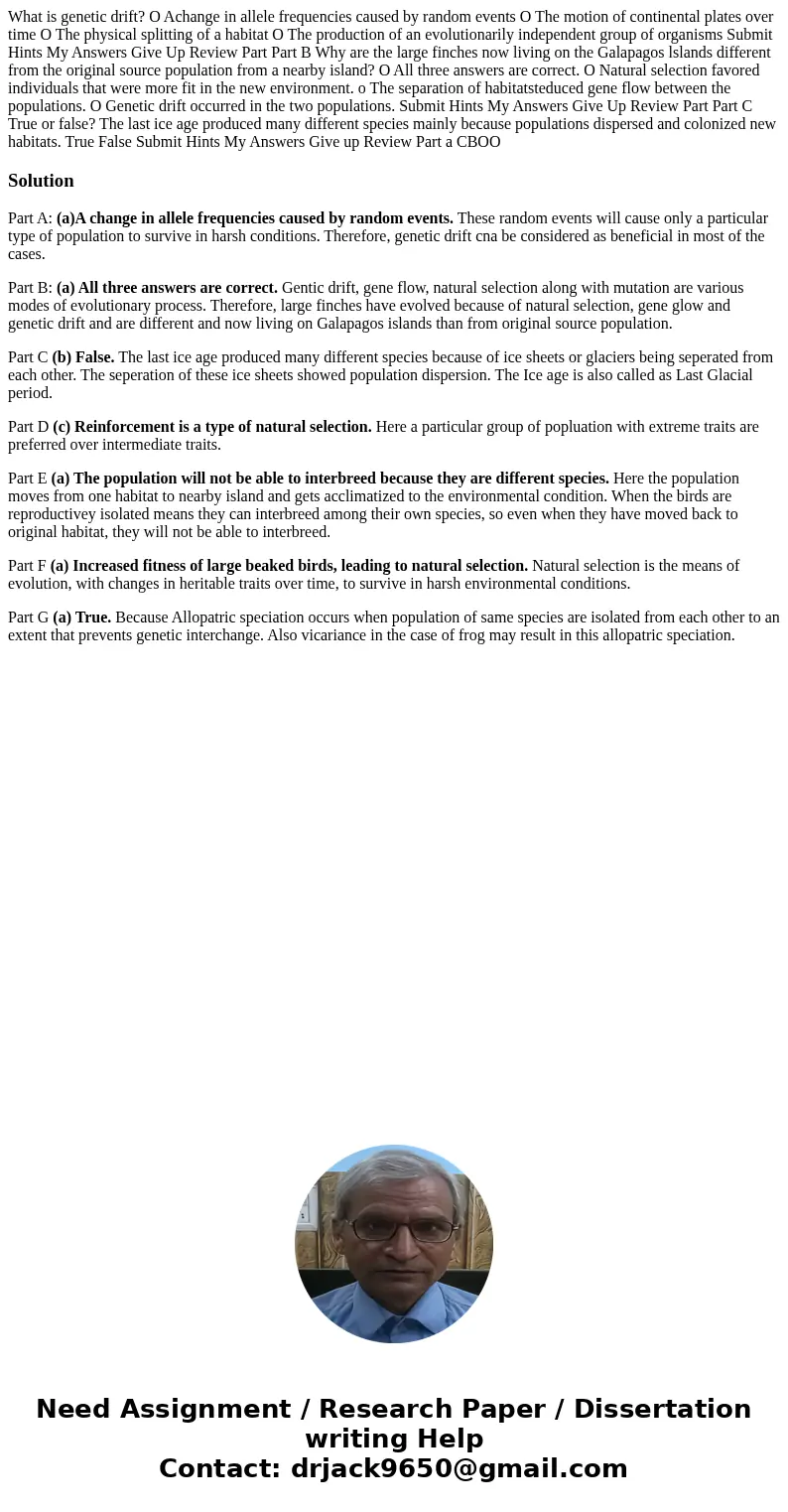What is genetic drift O Achange in allele frequencies caused
Solution
Part A: (a)A change in allele frequencies caused by random events. These random events will cause only a particular type of population to survive in harsh conditions. Therefore, genetic drift cna be considered as beneficial in most of the cases.
Part B: (a) All three answers are correct. Gentic drift, gene flow, natural selection along with mutation are various modes of evolutionary process. Therefore, large finches have evolved because of natural selection, gene glow and genetic drift and are different and now living on Galapagos islands than from original source population.
Part C (b) False. The last ice age produced many different species because of ice sheets or glaciers being seperated from each other. The seperation of these ice sheets showed population dispersion. The Ice age is also called as Last Glacial period.
Part D (c) Reinforcement is a type of natural selection. Here a particular group of popluation with extreme traits are preferred over intermediate traits.
Part E (a) The population will not be able to interbreed because they are different species. Here the population moves from one habitat to nearby island and gets acclimatized to the environmental condition. When the birds are reproductivey isolated means they can interbreed among their own species, so even when they have moved back to original habitat, they will not be able to interbreed.
Part F (a) Increased fitness of large beaked birds, leading to natural selection. Natural selection is the means of evolution, with changes in heritable traits over time, to survive in harsh environmental conditions.
Part G (a) True. Because Allopatric speciation occurs when population of same species are isolated from each other to an extent that prevents genetic interchange. Also vicariance in the case of frog may result in this allopatric speciation.

 Homework Sourse
Homework Sourse